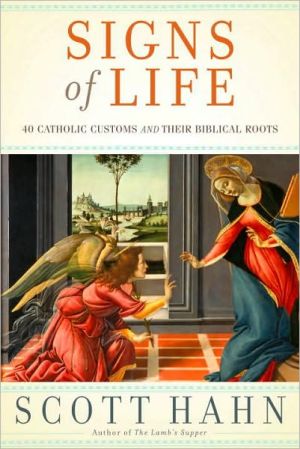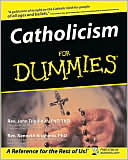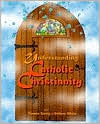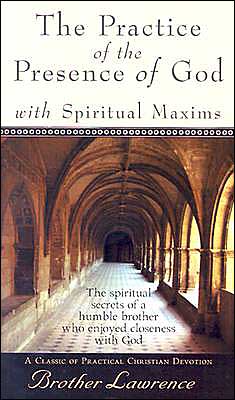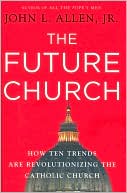Pius XII and the Holocaust: Understanding the Controversy
Search in google:
Chapter One \ \ \ A Political Papal Life\ \ \ A pope is the leader of a religious institution and as such he is charged with the responsibility for the spiritual welfare of the faithful of that institution, a fact often forgotten in the historiographical controversy surrounding Pius. He was an intensely spiritual person. He wrote a number of major encyclicals dealing with spiritual and religious matters. He prayed constantly. Most of his working hours were given over to religious concerns, administering the institution of which he was the ruler. But of course, secular matters impinged on the religious, and it is to these concerns that this study of Pius must address itself.\ Eugenio Pacelli was born to be pope and was on the papal fast track even before he was ordained. His grandfather was one of the founders of the Vatican newspaper, L'Osservatore Romano; his father worked as a lawyer for the Holy See. The family belonged to the Black Aristocracy, which supported the papacy through the bleakest days of the Roman Question. From the date of his birth, March 2, 1876, he breathed the air of papal politics and Vatican doings.\ He was given papal permission to study for the priesthood at home because of his frail health, and he was ordained in 1899. He had a knack for languages and the scholarly life. He was a curate for a few months, and then entered the papal diplomatic service in 1901, a move that marked his shift from a pastoral career to a diplomatic one. When World War I broke out in 1914, Pacelli was placed in charge of one of the papal humanitarian concerns, thatof maintaining a registry of prisoners of war and arranging their exchanges.\ In 1917 Pope Benedict XV named him nuncio to the Kingdom of Bavaria, in effect the papal representative to the entire German Empire, as there was no nuncio to Prussia. Benedict consecrated him Archbishop of Sardes, a titular see, for the dignity to go with his new diplomatic office. The Pope charged Pacelli with delivering a peace proposal to Kaiser Wilhelm (which neither the Allies nor the Kaiser accepted unconditionally), and for the remaining years of the war Pacelli lived in Munich, pursuing diplomatic business and continuing his humanitarian activities for prisoners and other victims of the war.\ When the war ended with German defeat, the chaotic condition of Germany, the Allied occupation of the Rhineland, and the success of the Bolshevik revolution in Russia led to the proclamation of a Soviet Republic in Bavaria in 1919. A rag-tag "Red Army" made up of anarchists, Communists, and proletarian agitators seized control of Munich. A few of these armed soldiers entered the nunciature and demanded the nuncio's property. Allegedly, Pacelli refused and faced them down, giving rise to the legend that this confrontation with German "Reds" was the origin of his lifelong hatred of Communism.\ Pacelli was named nuncio to the new German Republic in 1920. The new pope, Pius XI, elected in 1922 after Benedict's death, pursued a policy of negotiating concordats with all possible nations as a means of protecting the Church, and Pacelli stayed in Munich to negotiate a concordat with Bavaria. In 1925 he moved to Berlin. By this time Pacelli had completely mastered the German language and had assembled a German staff that remained with him the rest of his life. These included his housekeeper, Sister Pascalina Lehnert, and his assistant, Jesuit Robert Leiber. This German influence in Pacelli's household and staff, along with Pacelli's lifelong admiration of German culture, contributed to the later criticism that Pacelli as Pope favored the Germans in the war.\ As nuncio, Pacelli negotiated a concordat with the Prussian state in 1929. Later that year, he was named a cardinal, returned to Rome, and early in 1930, Pius XI named him Secretary of State of the Holy See. For the next nine years, Pacelli was the Pope's chief advisor and factotum. He carried out Pius' policies, advised him on diplomatic matters, helped write the Pope's encyclicals, and handled most international matters. He continued the papal policy of seeking concordats. In this capacity, he negotiated the Reich Concordat of 1933, the agreement with Hitler's Germany that later became a target of criticism by his detractors.\ Even though German affairs remained troublesome for the Pope and his Secretary of State, other countries also presented enormous problems. There was the ongoing struggle with the Mexican government, which had limited the number of clergy in that nation to an absurdly low number, a measure which in turn had provoked a violent rebellion in the name of Christ, to which the government responded with brutal force. Even worse was the Spanish Civil War, which broke out in the summer of 1936. In the space of a few months nearly seven thousand priests, nuns, and monks, along with countless thousands of Catholic laypersons, were killed by anticlerical uncontrollables who flew the red flag in one form or another, thereby adding to the traditional papal fear of Bolshevism.\ As for the Germans, in the years following the signing of the concordat of 1933, Pacelli, at the Pope's direction, sent dozens of protests to the German government citing violations of the accord. Early in 1937, Pius XI asked the German cardinals to help him write an encyclical protesting the Nazi government's persecution of the Church. This encyclical, Mit Brennender Sorge, was issued on Palm Sunday 1937 and was read in all German churches. It protested the government's violations of the concordat and also condemned the Nazi doctrines of racism and statism.\ By the late 1930s Pacelli's anti-Nazi sentiments were well known. So also was he himself. He had attended Eucharistic congresses in Buenos Aires and Budapest. He had traveled throughout Europe and visited the United States as well. He was the best-known cardinal in the world. Pius XI probably sent him on these journeys for precisely that purpose, intimating at least once that he wanted Pacelli to be his successor on the throne of St. Peter.\ In February 1939 Pius XI died. In the conclave that followed, Pacelli was elected Pope on the third ballot. He took the name of his predecessor and became Pius XII. Up to this point, and in fact beyond, there is no question that Pacelli was identified as anti-Nazi both by the future Allies and the Axis powers, largely because of his association with his predecessor but also because of a few anti-Nazi statements he had made. The press in London, New York, and Paris hailed his election, expressing confidence that he would support them in the coming battle between democracy and fascism. The Nazi press saw him as continuing the confrontational policy of Pius XI and therefore as unsympathetic to the Nazis. On the other hand, German diplomats at the Vatican were pleased because the new Pope, despite his opposition to Nazism, was a diplomat and had given assurances before the conclave that he would be open to conciliation with Germany.\ In the six months between Pius XII's election on March 2, 1939, and the outbreak of the Second World War on September 1, the new Pope was occupied with trying to prevent the conflict. He proposed a peace plan, offered to mediate the diplomatic efforts to prevent war, and invited all future belligerents, save the Soviets, to a conference at the Vatican. None of his proposals were accepted by all of the powers, and his efforts came to naught.\ When the war began, Pius immediately offered his services for mediation, and throughout the entire conflict he never ceased to maintain that offer, a fact that was made abundantly clear to both sides. At the same time, he had to address a number of other problems created by the war.\ A major consideration was the question of the morality of the war started by the German invasion of Poland. He was constantly besought by the Allies (Britain, France, and Poland, at first) to condemn the German action. He was also distressed by the Soviet invasion of Poland, which took place two weeks after the German invasion, in accord with the secret clauses of the Soviet-German non-aggression pact of August 1939. Furthermore, his fears of the Soviets grew after their invasion of Finland in November.\ During this time, Pius secretly agreed to serve as a conduit and guarantor between anti-Hitler Germans and the British government to arrange a compromise peace. When the negotiations failed, the Pope apparently came to realize how severely he would have compromised the papacy if the secret negotiations had been discovered by Hitler's government, and he observed strict neutrality thereafter.\ In 1940, his concern about the morality of war was further heightened by the German invasion of Norway and Denmark in April, and the invasion of France and the Low Countries in May. Pius sent sympathetic notes to the rulers of Belgium, the Netherlands, and Luxemburg, commiserating with them on the unprovoked German attack on their nations.\ Pius devoted major effort to attempting to keep Italy out of the war, since by virtue of his position as Bishop of Rome and Primate of Italy, his influence was greater there than in other countries. He was unsuccessful; Italy declared war on Britain and France in June 1940. When France fell to the Germans and was divided in two, the puppet Vichy regime, while undertaking the task of erasing decades of official anticlericalism, joined the other German satellite states in beginning to persecute Jews.\ Along with the persecution of the Jews, by the end of 1940, another problem had arisen: war crimes. These included killing of civilians, mistreatment of prisoners of war, and terror-bombing of cities. For Pius, these crimes were not only a matter of great anxiety; they also put a greater demand upon the traditional humanitarian work of the Holy See for the victims of war. These humanitarian activities continued on to the end of the war, as the casualties grew ever larger.\ In 1941, the Germans and their allies invaded Yugoslavia and Greece. The Yugoslav state was shattered into its constituent ethnic nations. In the newly independent Catholic Croatia, the fascist Ustasha began a wholesale persecution of Orthodox Serbs, Jews, and Gypsies; many of the Serbs were forced to choose between conversion to Roman Catholicism or death, and others were simply killed. Pius had to deal with the Ustasha leader, Ante Pavelic, who wanted papal recognition and blessing of his new state. The Pope gave neither, but neither did he condemn the conversions publicly, preferring to work diplomatically to lessen the Ustasha terror.\ Then, in June 1941, the Germans invaded the Soviet Union. Some Germans sought Pius' support for this Eastern war, arguing that the German invasion was a crusade against godless Bolshevism. Pius declined to give it. As reports came in to the Vatican of large numbers of Jews being killed in the occupied areas of the Soviet Union, the Pope told his confidantes and diplomats in the Vatican of his anxiety over these atrocities. By the end of 1941, the Germans had been stopped outside of Moscow and the United States had entered the war.\ In 1942, the Nazi leaders held the Wannsee conference, at which they decided upon a more systematic killing of the Jews under their control, and the machinery for constructing the death camps, primarily in occupied Poland, was set in motion. By midsummer, the news had been reported to the Pope that Jews were being killed in large numbers. Papal nuncios in the Axis satellite and puppet states reported that governments there were being pressured by the Germans to transport their native and immigrant Jews to Poland for "resettlement." Papal nuncios sought to stop these deportations by diplomatic protest, to little avail in some nations, with greater success in others.\ Early in 1943, the Allied leaders at the Casablanca conference issued a statement calling for the unconditional surrender of the Axis powers. Pius was concerned, because he believed that this demand would prolong the war. He was also increasingly alarmed about Allied bombing of German cities. His most pressing problem, however, was the German occupation of Italy, and most particularly Rome, after Italy surrendered to the Allies in September. The German occupation of Rome lasted from September 1943 until June 1944, and for much of northern Italy, German control lasted until the end of the war. The Vatican came under German surveillance, although German soldiers were forbidden to enter the Vatican. Meanwhile Italian Jews were transported to the death camps.\ As Allied armies closed in on Rome in 1944, Pius feared damage to the Benedictine Abbey of Monte Cassino and to Rome itself, as Allied bombs fell on parts of the city near the rail yards. He pleaded with the Allies to spare Rome because of its architectural treasures, and the Romans came to view him as the defender of the city. When Rome was liberated, Pius blessed the Allied forces and granted numerous audiences for the troops.\ The war ended in 1945, and Pius immediately took on the mantle of opposition to the Communists in the Cold War. In 1949 he decreed excommunication for Catholics who joined the Communist Party, and he forbade Italian Catholics under pain of excommunication to vote for the Communist slate in the 1948 elections. He was concerned about the Communist purges in the Soviet satellite states, especially by the trials of Cardinals Stefan Wyszynski of Poland, Alojzije Stepinac of Yugoslavia, Josef Beran of Czechoslovakia, and Josef Mindszenty of Hungary, each imprisoned by the Communist regimes in their countries. He forcefully condemned the Soviet crushing of the Hungarian uprising in October 1956.\ Pope Pius died in October 1958. The press carried messages of condolence from throughout the world, and he was lauded for his humanitarian activities during the Second World War, not least by Jewish leaders, who specifically cited his protection of Jews from the Holocaust.\ \ \ Excerpted from Pius XII and the Holocaust by José M. Sánchez. Copyright © 2002 by The Catholic University of America Press. Excerpted by permission. All rights reserved. No part of this excerpt may be reproduced or reprinted without permission in writing from the publisher. \ \ \ \
Preface and Acknowledgments,vii Introduction,1 1. A Political Papal Life14 2. Issues, Sources, and Papal Aims and Means22 3. What Pius Knew about the Holocaust42 4. What Pius Said about the War47 5. An Examination of the Reasons The Least Likely69 6. The Need for Protection of German Catholics81 7. Vatican Diplomacy Has Always Been Cautious90 8. A Crisis of Conscience for German Catholics97 9. Pius Feared Communism More than Nazism103 10. Pius Wanted to Serve as Mediator in the War108 11. A Papal Protest Would Have Made Things Worse114 12. Pope Pius' Personality121 13. The Effect of a Strong Protest Virtual History131 14. Pius and the Countries of German-Dominated Europe137 15. Conclusion A Pathetic and Tremendous Figure172 Bibliography,181 Index,191
\ Publishers WeeklyAfter the hype associated with John Cornwell's 1999 work Hitler's Pope, this careful, scholarly study of Pope Pius XII and the Holocaust is a refreshing contribution to a debate that continues more than a half century after the end of World War II. Sanchez, a professor of history at St. Louis University, thoughtfully examines the various arguments on both sides of a controversy that will likely never be resolved. In doing so, he presents a dispassionate, thoroughly documented tome that exhibits a high degree of fairness. Sanchez began his research in 1998 to provide a fresh, balanced look at a topic on which most authors have found it necessary to weigh in heavily on one side or the other. He assesses claims ranging from allegations that the late pope was an anti-Semite to the defense that the pontiff did not speak out more forcefully against the Nazi persecution of the Jews because he feared he would make things worse for the victims. Sanchez's conclusions offer nods to both the critics and defenders of Pius XII, but because his summary statement is more gray than black or white, readers looking for the sort of spice dished up by Hitler's Pope will doubtless be left disappointed. Sanchez's treatment is ideal for students of history and anyone truly interested in an objective analysis of a controversial figure. (Jan. 31) Copyright 2001 Cahners Business Information.\ \


